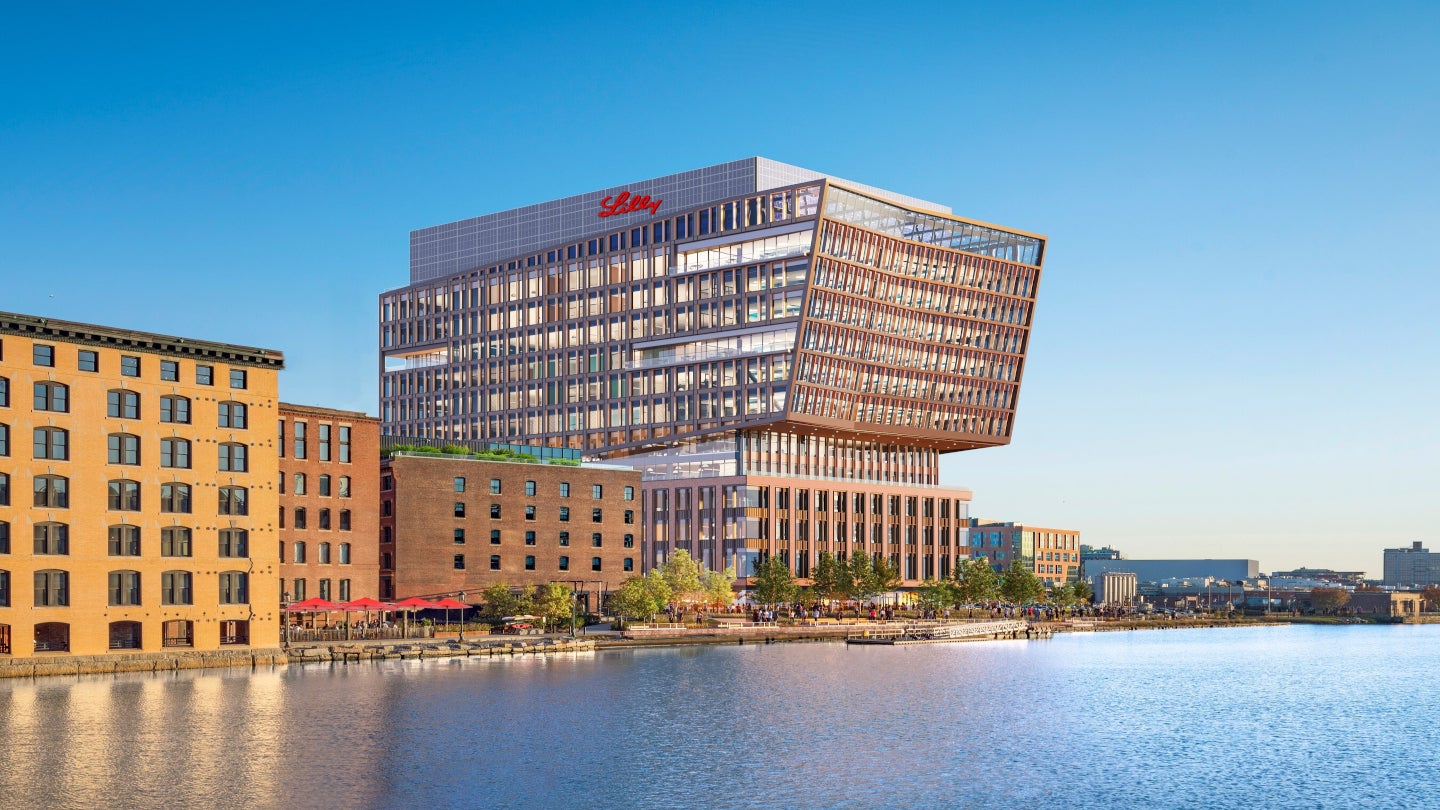Lilly Seaport Innovation Center (LSC), formerly known as Lilly Institute for Genetic Medicine, is a research and development facility dedicated to advancing RNA and DNA-based therapies in the Seaport Innovation District of Greater Boston, Massachusetts. The facility is used to discover new drug targets to treat diseases including diabetes, obesity, cardiovascular diseases, neurodegeneration and chronic pain. LSC is the central hub for Eli Lilly’s genetic medicine initiatives and hosts the company’s first East Coast Lilly Gateway Labs.
Developed with an investment of approximately $700m, the facility was opened in August 2024. LSC accommodates 500 researchers and experts working in the fields of biology, chemistry and data science, and 200 employees from the companies within Lilly Gateway Labs. Location The facility is located opposite Fort Point Channel in the 12-storey life science building 15 Necco developed and operated by US-based real estate companies Alexandria Real Estate Equities and partner National Development at 15 Necco Street in the Boston Seaport.

15 Necco includes office, life science and research and development spaces, along with retail and a new public park adjacent to the building. The office and lab space of the building is fully leased to Eli Lilly. The building sits on a 2.
7-acre (1 hectare) site in the Fort Point neighbourhood. It is located next to Cambridge’s Kendall Square and can be accessed from several major transportation hubs. Lilly Seaport Innovation Center details The state-of-the-art facility occupies 346,000ft (32,114m ) of space as an anchor tenant in 15 Necco.
LSC leverages RNA and DNA-based technologies to develop therapies for potential treatment and prevention of diseases that are either hard to treat or cannot be treated with conventional medicines. The facility also includes Gateway Labs, a shared space for innovation, similar to the one in San Francisco. This space includes a dedicated and office area to support collaboration opportunities with biotech start-ups in the Boston area.
The building has been designed to seamlessly blend indoor and outdoor spaces for occupants. It is fitted with an Autocall fire alarm system and nLight lighting controls. Its design is employee-centric, giving priority to employee health and wellbeing.
Additionally, Lilly has leased 36,000ft at 215 First Street, owned by Alexandria, to support the expansion of LSC. Sustainable features of the facility The building is designed to achieve Leadership in Energy and Environmental Design (LEED) Gold Core & Shell, Fitwel Life Science, WELL and WiredScore Platinum certifications. It is highly energy-efficient, featuring a high-performance building envelope, efficient mechanical systems and on-site renewable geothermal energy and solar energy.
The building design also addresses climate risks and features an elevated building structure to protect it from future floodwaters. The site grades and landscape areas are also situated above future flood levels to reduce floodwater and safeguard the building from flood precipitation. Research activities at Lilly Seaport Innovation Center Eli Lilly aims to develop genetic medicines, which currently comprise more than 20% of its diabetes, immunology, obesity, cardiovascular diseases, chronic pain and central nervous system research portfolio, at the institute.
Genetic medicines have the potential to target certain genes that do not function properly, which can cause neurodegenerative diseases such as Parkinson’s disease, Gaucher disease, Alzheimer’s disease and cancers. The Boston facility focuses on the development of a new class of genetic therapies that can act at the nucleic acid level and address the underlying causes of diseases. Eli Lilly leverages new technologies such as gene therapy, gene editing and small interfering (siRNA) technology, as well as its deep biological expertise, to develop therapies that can correct gene function in patients suffering from neurodegenerative disorders.
The investment builds on the company’s acquisition of Prevail Therapeutics, a gene therapy company based in New York, US. The institute combines the technologies and expertise of the two companies to expedite the development of gene therapies. Contractors involved Elkus Manfredi Architects and OJB Landscape Architecture were responsible for the design and architecture of the facility.
J&M Brown Company, an electrical installation services provider, was awarded the interior fit-out of the building, including lighting, power, distribution and fire alarm. McNamara Salvia Structural Engineers offered structural engineering services for the facility. ES Metals, a design and engineering company, worked on the exterior cladding system, giving the building’s facade a unique and distinctive appearance.
.


















